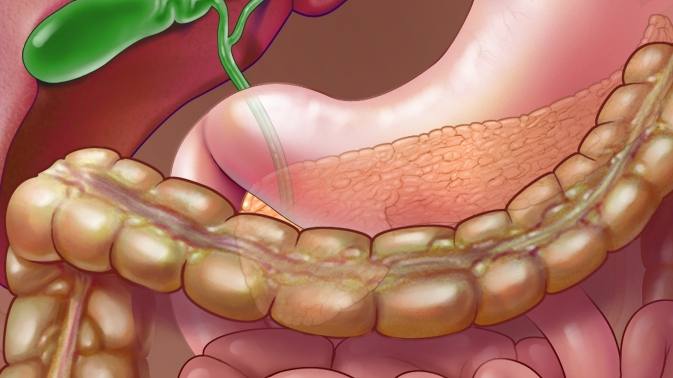
ROCHESTER, Minn. — Mayo Clinic physicians will present findings at the American College of Gastroenterologists Annual Scientific Meeting, Oct. 25–30 in San Antonio.
Findings to be presented are:
Patients with microscopic colitis do not have reduced risk of developing colon polyps
Cross-sectional studies have suggested that patients with microscopic colitis have a lower risk than the general population of developing colon polyps after diagnosis, but a 10-year, multicenter cohort study finds that there's no change in risk.
Microscopic colitis is a common cause of chronic diarrhea, and previous studies have found that these patients have a lower incidence of colon polyps. The cohort study, which reviewed 1,128 cases of patients who underwent colonoscopy at Mayo Clinic and Columbia University Irving Medical Center in New York City, found that there was no significant association between microscopic colitis and risk of polyps, says Darrell Pardi, M.D., a Mayo Clinic gastroenterologist and the study's senior author.
"Our data suggest that patients with microscopic colitis are at the same risk of developing polyps during follow-up examinations as the general population and therefore their need for surveillance colonoscopy is also the same," says Dr. Pardi.
Anti-tumor necrosis factor (TNF) therapy linked to preeclampsia in women with inflammatory bowel disease
Women with inflammatory bowel disease have an increased risk of adverse pregnancy outcomes, and some studies have suggested an association between the disease and preeclampsia, a pregnancy complication that results in high blood pressure, and possible damage to the liver, kidneys or other organs.
Mayo Clinic researchers looked into whether anti-tumor necrosis factor therapy, which commonly is used to treat inflammatory bowel disease, reduced the risk of patients developing preeclampsia. The results of the small study, which involved nine women with preeclampsia and 18 controls, were surprising.
"When we examined the risk for preeclampsia in those on anti-TNF therapy, it was actually higher than in the nonexposed group," says Sunanda Kane, M.D., a Mayo Clinic gastroenterologist and senior author. "We theorize that exposure to anti-TNF agents is a marker of more severe disease, and the amount of inflammation in the body is what drives the increased risk for preeclampsia."
Positive polymerase chain reaction (PCR) test results may not predict recurrence of common infection
Clostridioides difficile infection is the most common health care-associated infection in the U.S., and it sometimes recurs after initial treatment. Several tests are available for diagnosis, including polymerase chain reaction. This test provides quick results, but can produce a positive result, even after appropriate treatment of the infection.
Mayo Clinic researchers wanted to determine whether a positive polymerase chain reaction result during or after treatment predicted infection recurrence. The study involved 50 patients with C. diffinfection who submitted stool samples for polymerase chain reaction testing. The infection recurred within 56 days for 28% of patients, but the study found that patients with a positive polymerase chain reaction after treatment completion did not have a higher risk of recurrence.
"We were surprised that positive PCR results during or after treatment did not seem to predict recurrence," says Sahil Khanna, M.B.B.S., a Mayo Clinic gastroenterologist and the study's corresponding author. Though more research is needed, Dr. Khanna says patients with C. diff infection should not routinely undergo repeat polymerase chain reaction testing to predict recurrence.
Study proposes new method, protocol to study stomach function after bariatric surgery
Bariatric surgery reduces the size of the stomach and is intended to help patients lose weight by limiting how much they can eat. Some patients don't achieve significant weight loss, however, while some regain weight later. It's difficult to measure and assess the patient's stomach after surgery, which limits doctors' ability to develop treatment strategies.
Mayo Clinic researchers set out to develop a new way to study stomach function after bariatric surgery. They also sought to develop a new protocol to evaluate stomach accommodation — how much the stomach increased in size after eating — and stomach emptying at the same time. Their study outlines values for the new test protocol.
"Utilizing this new test, we will be able to have a better idea of how the stomach functions after bariatric surgery," says Xiao Jing Wang, M.D., a Mayo Clinic gastroenterology fellow and the study's lead author. "This protocol may lead to additional treatments, such as medications that delay stomach emptying, to restore the sensation of fullness after meals."
About Mayo Clinic
Mayo Clinic is a nonprofit organization committed to innovation in clinical practice, education and research, and providing compassion, expertise and answers to everyone who needs healing. Visit the Mayo Clinic News Network for additional Mayo Clinic news and An Inside Look at Mayo Clinic for more information about Mayo.
Media contact:
- Joe Dangor, Mayo Clinic Public Affairs, 507-284-5005, newsbureau@mayo.edu







